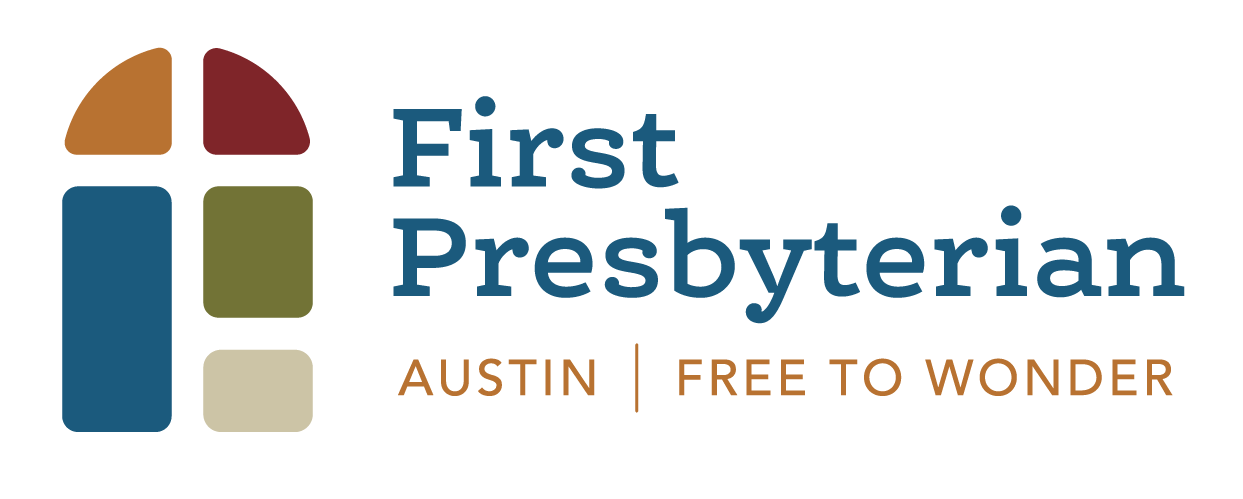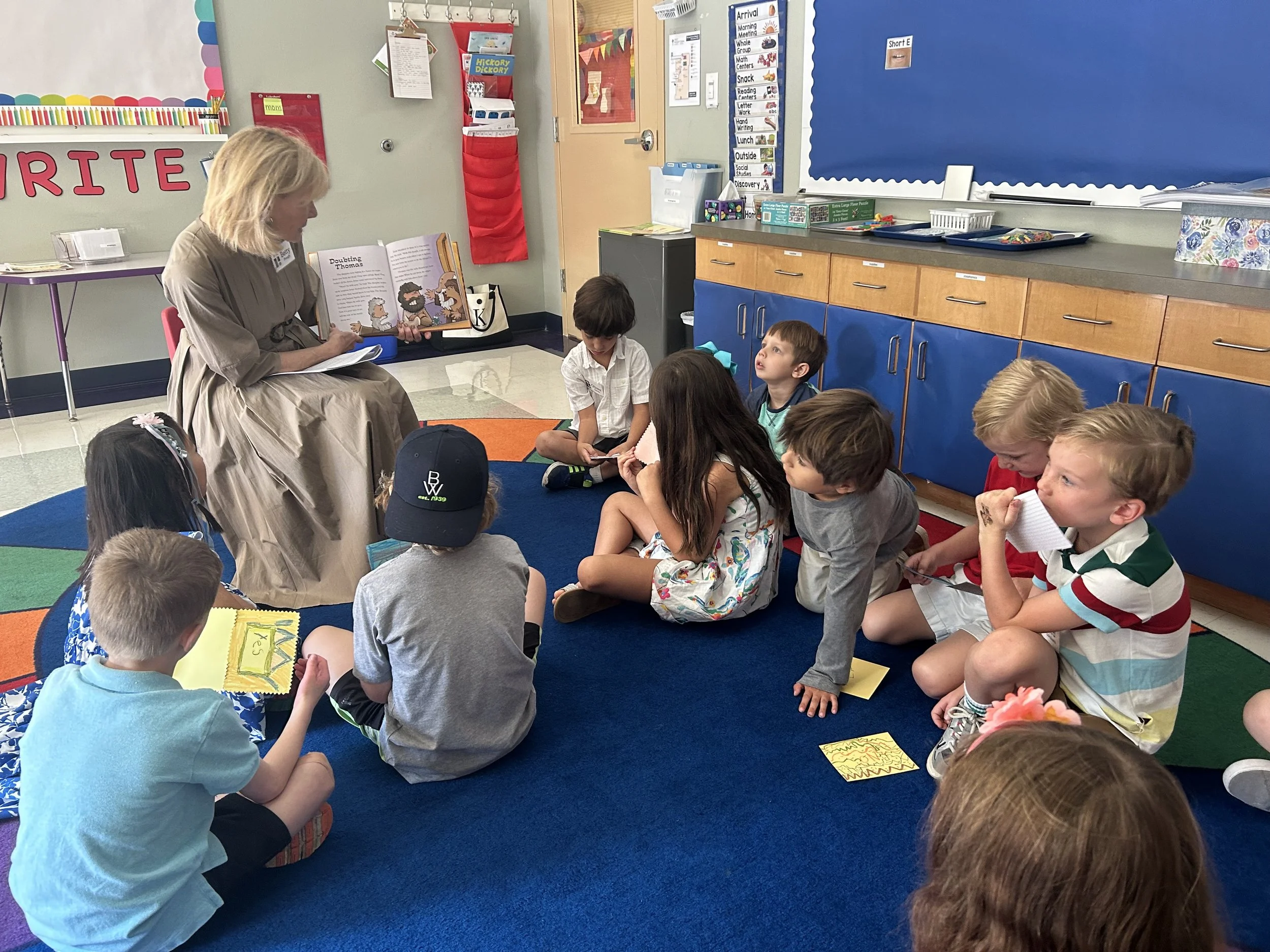Leave a Lasting Legacy
Change lives today and maximize your impact for generations to come with a prayerful legacy plan.
When you match your will to your personal values of faith, love, and family, you’ll experience peace knowing your affairs are in order, and that they reflect your heart.
ALREADY INCLUDED FIRST PRESBYTERIAN CHURCH, AUSTIN IN YOUR WILL? Let Us KNOw.
Cultivating a Legacy of Generosity
As you reflect on the legacy you want to leave your family, your values are one of the most important gifts you can pass on. But it can be challenging to know where and how to start that conversation. Here are some questions to consider:
What kind of legacy do I want to leave for my children?
What are the beliefs and values I want to pass along to the next generation?
How can my estate plan reflect my love for my family, church, and favorite ministries?
Creating a Legacy Love Letter with your estate plan allows you to share guiding principles, memories, stories of personal faith, and future wishes for your family. Think of it as a cover letter to your will, elevating it from a legal document to an act of worship that can have a life-changing impact on your family.
Use this free guide to help you write your own Legacy Love Letter, also known as an Ethical Will. Take some time to think and pray through each of the elements and the values you want to pass on to the next generation.
Save time and money by filling out our Wills Planner on your own before you see an attorney or estate planner.
Learn More About Legacy Planning
ANSWERS TO YOUR QUESTIONS ABOUT CREATING A WILL
What is a legacy plan?
A legacy plan is a thoughtful, prayer-filled discernment process that communicates how your most closely held values, including your Christian faith, can be passed on to the next generation.
A legacy plan includes legal documents (wills and trusts) that distribute property upon your death and provide for the care of minor children. A legacy plan can also include a written summary (sometimes called a legacy love letter or ethical will) of your most cherished values — values you want your loved ones to know and understand.
How does a legacy plan help me pass on my values to the next generation?
The way you choose to design your legacy plan communicates what’s most important to you. When you include a gift in your will to the ministries aligned with your passions, you make a clear declaration to your loved ones about the work that Christ has done in your life and what you want your legacy to express.
What is a will?
A will is a legal document that outlines how your property will be distributed upon your death.
What is a bequest?
A bequest is a gift of money or property distributed through your will. You can bequeath a gift to your heirs, friends, or to a charity.
How is an estate plan different from a will?
A will is part of an estate plan. Details to keep in mind:
A will deals with the distribution of your assets after you pass away. It can also be used to name guardians for your children.
Your estate plan should include a health care power of attorney—sometimes called an advanced directive—which names an individual who can make medical decisions if you are incapacitated.
Your estate plan should also identify a financial power of attorney, which names an individual who can direct and manage your finances if you become incapacitated.
Some estate plans also include revocable living trusts to provide additional options to protect your assets.
Do I need an attorney to create a will?
If your estate is simple, you may not need an attorney and could benefit from many of the online will tools available. Here are some questions to help you decide:
Do you have children with special needs, a blended family, or a remarriage?
Do you wish to disinherit a family member, are concerned that your estate will be contested, or need to include unique provisions?
Does your estate include complex assets such as a family business, real estate (in different states), or an estate value over estate tax limits?
If any of these circumstances apply to you, you may wish to consult an attorney.
What online tools are available to create a will?
Cost is often a concern when it comes to getting a will. A lawyer may charge you $800 for a basic will (and a lot more if your estate is complicated), but most people can get an online will for less than $200. Online will sites provide simple questionnaires that the average person can answer in about 30 minutes or less. Do-it-yourself online legal documents have been accepted by court and government agencies in all 50 states. Some of the most popular online will sites were founded by attorneys and offer high-quality, legally valid, state-specific wills.
How much does a will cost?
Simple wills using online tools can be completed for less than $200. Basic wills created with the help of an attorney can cost anywhere from $800-$1,000.
What happens if I die without a will?
If you do not have a will, the state would determine (without your input):
Who will be the next steward of your resources
Who will care for your young children
Who will administer your estate
How do I know if I should update my will?
Consider these top 10 reasons to update your will:
Marriage or divorce
New baby, adopted children, or stepchildren
Moving to another state
Changing your mind about heirs
Major changes in property ownership or financial assets
Changes in estate planning and estate tax law
Death or disability of someone named in your will
Children have reached the age of 18
You would like to provide for a ministry organization
It has been three years or more since you have reviewed your will
Other Ways to Give
I WANT TO INCLUDE MY FAMILY IN MY GIVING
A personal giving fund, known as a Donor Advised Fund (DAF), is the fastest growing charitable giving vehicle and may be just what you’re looking for. It’s a simple way to give cash, real estate, stocks, mutual funds, or commodities and allows you the flexibility to distribute gifts over time.
I WANT TO MAKE A SIGNIFICANT GIFT AND EARN INCOME AT THE SAME TIME
A Charitable Gift Annuity (CGA) may be a good fit for you. CGAs are a simple arrangement that involves a charitable gift and ongoing income. You make a gift—part of which is tax deductible—and receive fixed payments each year for the rest of your life. At the end of your life, the remainder of your charitable gift goes to support our work.
I HAVE ASSETS LIKE REAL ESTATE, LIFE INSURANCE, STOCKS, MUTUAL FUNDS AND PROPERTY I’D LIKE TO GIVE
The majority of your wealth is most likely held in non-cash assets. You can use these resources to make a lasting difference in our work. Plus, giving non-cash assets can help you reduce or eliminate capital gains tax when you transfer part or all of your assets to a charitable organization before the sale. You’ll receive a tax deduction (and see significant savings on your income tax returns).
I’D LIKE TO USE MY RETIREMENT ASSETS TO SUPPORT YOUR WORK.
You have options when it comes to giving from your retirement assets.
Qualified Charitable Distributions (QCDs) from a retirement account (also known as Charitable IRA rollovers) are a great way to make a charitable gift and save on taxes. Donors aged 70.5 and older are eligible to make a distribution from their IRA directly to their favorite charities. Donors aged 73 (age is raised to 75 by 2033) are required to take a minimum distribution from their IRA each year. This required minimum distribution (RMD) can also be directed to a charity as a QCD. The QCD giving option is tax advantageous because you are not required to pay income tax on charitable withdrawals from these accounts, plus the sum you give will not be included in your adjusted gross income.
You can also designate First Presbyterian Church, Austin as a primary or secondary beneficiary of your 401k, 403b, or Individual Retirement Account (IRA). With this option, at your death all remaining assets will be transferred to your chosen beneficiaries.
SAMPLE GIFT-IN-WILL LANGUAGE AND TAX ID NUMBER
Leaving a gift in your will (sometimes called a bequest) to a ministry or charity that you love is a great expression of your personal values, and it may be simpler than you think. We’ve developed language for the most common types of in-will gifts. These are suggestions and should be written or adapted by your legal counsel to fit your situation.
General Support: “I give _______ (% or dollar amount) of my estate to: First Presbyterian Church of Austin, TX for its general use.”
Specific Program: “I give ____ (% or dollar amount) of my estate to: First Presbyterian Church of Austin, TX for the (Name of the Project or Fund).”
Remainder of Estate: “I give and devise to: First Presbyterian Church of Austin, TX all (or state a percentage) of the rest, residue and remainder of my estate, both real and personal, to be used for its general support (or for the support of a specific fund or program).”
Our Legal Name & Tax ID Number
Your legal counsel will need this information when assisting you with your estate plan.
Legal Name: First Presbyterian Church, Austin
Tax ID Number: 74-1362533
First Presbyterian Church of Austin does not and will not engage in the practice of law. Therefore, it is important that you seek an attorney directly or through one of the online services listed for the preparation of legal work. First Presbyterian Church of Austin cannot review your estate plan for legal accuracy; you must rely upon the legal advice received from your attorney or online legal service. Links to third party sites are provided as examples of commonly known resources for information purposes only. First Presbyterian Church of Austin does not endorse any third-party products or content that may be available through the links to any third party websites. First Presbyterian Church of Austin receives no payments or benefits from these sites.

